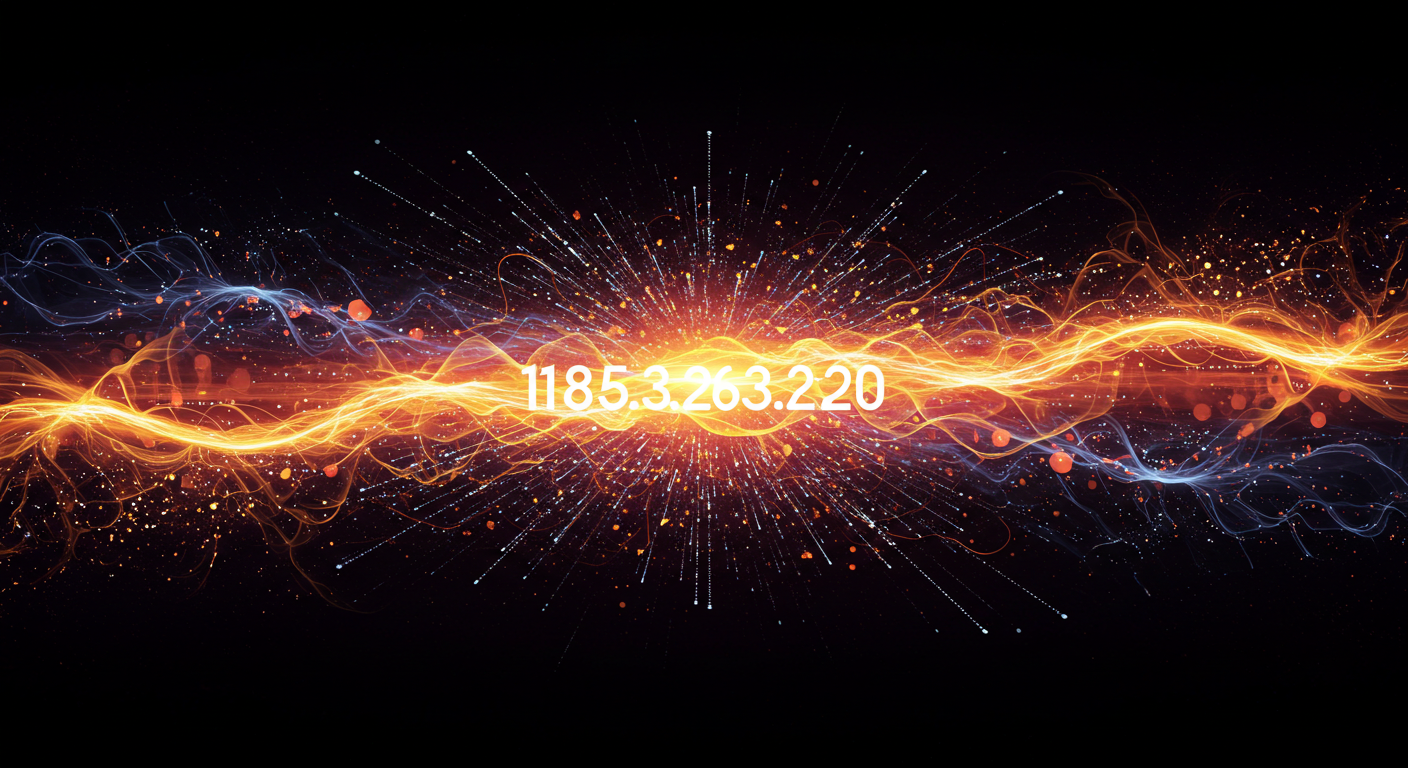In the ever-expanding digital universe, numbers and codes often carry significant meaning. One such example is 185.63.263.20, an IP address that sparks curiosity among users who encounter it online. While it may appear as just a string of digits, IP addresses like 185.63.263.20 are fundamental to how the internet works. This article takes a closer look at what 185.63.263.20 represents, why it matters, and how such IP addresses influence online connectivity, security, and digital identity.
What is 185.63.263.20?
At its core, 185.63.263.20 is an Internet Protocol (IP) address. An IP address is a unique identifier assigned to devices connected to a network. Just as a postal address guides physical mail to its destination, an IP address directs online traffic to the correct digital location.
In simple terms, if you type 185.63.263.20 into your browser, it may connect you to a specific server, website, or system depending on how that IP address is configured. Without IP addresses, the seamless exchange of data we rely on every day would be impossible.
The Structure of 185.63.263.20
Breaking down 185.63.263.20, we see that it follows the IPv4 format. IPv4 addresses consist of four sets of numbers separated by dots, each ranging from 0 to 255. These sets are known as octets. They help define the unique location of a device within a broader network.
Although IPv6 (a newer version of the Internet Protocol) is becoming more common, IPv4 addresses like 185.63.263.20 are still widely used. This makes them essential in everyday browsing, server management, and cybersecurity practices.
Why 185.63.263.20 Matters
The importance of 185.63.263.20 lies in its role within the larger framework of digital communication. Some of the reasons it stands out include:
-
Unique Identification – Every IP address, including 185.63.263.20, is unique, ensuring accurate routing of online traffic.
-
Connectivity – Devices use IP addresses to interact with one another across networks.
-
Security Tracking – Cybersecurity experts often analyze IP addresses like 185.63.263.20 to detect unusual activity or potential threats.
-
Server Management – Businesses assign IPs to servers for better hosting and data handling.
Common Uses of 185.63.263.20
IP addresses such as 185.63.263.20 can serve several purposes depending on their allocation:
-
Hosting Websites – A web server may use 185.63.263.20 to host domains.
-
Remote Access – Administrators might connect to this IP for server maintenance.
-
Network Routing – It can act as part of a routing system directing digital traffic.
-
Geolocation Identification – Analysts may use IPs like 185.63.263.20 to trace geographical access points.
Security Implications of 185.63.263.20
Whenever an IP like 185.63.263.20 appears in logs, online users may wonder about its security implications. IP addresses are not inherently dangerous, but they can reveal information about traffic flow, network access, and possible vulnerabilities.
-
Tracking Suspicious Activity – Cyber experts monitor IP addresses to detect hacking attempts.
-
Blocking Malicious IPs – If 185.63.263.20 is associated with harmful behavior, it can be blacklisted.
-
VPN and Privacy – Many users hide their real IP behind VPNs, masking identifiers like 185.63.263.20 for security.
185.63.263.20 and Cybersecurity
In today’s online environment, 185.63.263.20 is more than just a technical identifier—it is a part of the cybersecurity ecosystem. Security teams analyze IP data to detect patterns of intrusion or spam activity. By studying addresses like 185.63.263.20, they can trace attacks back to specific regions or networks.
For businesses, regularly auditing server IPs such as 185.63.263.20 helps ensure system reliability and protection from unauthorized access.
The Role of 185.63.263.20 in Networking
Networking is built on the foundation of IP addresses. 185.63.263.20 could serve as a gateway, a server endpoint, or a temporary identifier in a large pool of assigned IPs. Each role is essential for the seamless communication between devices across local networks and the broader internet.
Without such identifiers, connecting a smartphone, computer, or IoT device to the global network would be impossible.
Misconceptions About 185.63.263.20
While IPs like 185.63.263.20 carry importance, they are sometimes misunderstood. Common misconceptions include:
-
“An IP reveals personal details instantly” – In reality, an IP like 185.63.263.20 can indicate location but not private user data.
-
“IPs are permanent” – Many addresses, including 185.63.263.20, may be dynamic, changing based on internet service providers.
-
“IPs can’t be shared” – Servers often host multiple domains on a single IP, making shared hosting common.
Future of IPs Like 185.63.263.20
As the internet continues to grow, IPv4 addresses such as may become more limited due to high demand. This is why IPv6 adoption is increasing, offering a much larger pool of available addresses. However, IPv4 remains highly relevant, and is a clear example of its ongoing importance in modern networking and digital infrastructure.
Conclusion
The string of digits may seem ordinary at first glance, but its significance lies in the foundation it provides for digital communication. As an IPv4 address, it plays a critical role in routing traffic, managing servers, and securing online systems. From cybersecurity to network connectivity highlights how integral IP addresses are to the modern digital world.
Understanding such identifiers not only deepens our knowledge of internet infrastructure but also reinforces the importance of transparency, safety, and innovation in an era where connectivity drives progress.

